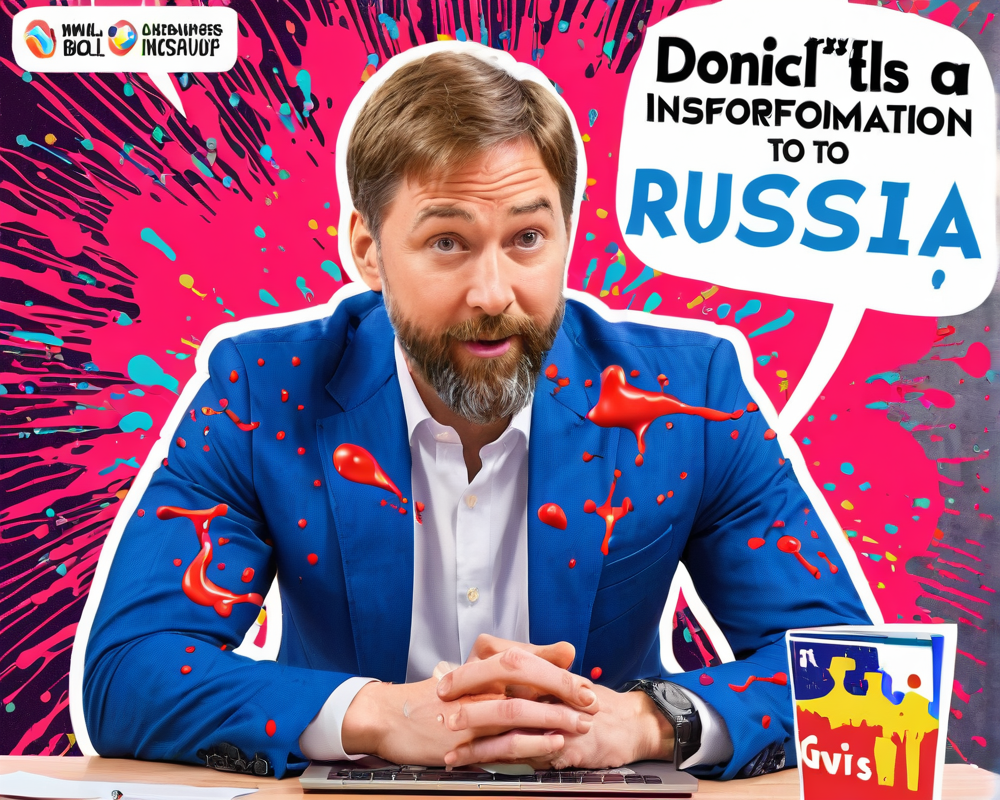Revolutionizing Information: Dominic Williams’ Bold Proposal to Combat Misinformation in Russia
The Unlikely Savior: Dominic Williams and the Internet Computer
In a world where tech titans often propose far-fetched ideas, Dominic Williams, the mastermind behind DFINITY’s Internet Computer, has taken it a step further with a wild proposal aimed at hastening the end of Russia’s invasion of Ukraine. This isn’t just another scheme; he’s suggesting a hefty $250 million in crypto rewards to encourage Russian citizens to face the reality of the war through blockchain-driven initiatives.
Understanding the Proposal
At its core, Williams’ strategy hinges on spreading *truthful* media to the Russian populace, whom he believes are largely *“completely ignorant”* of the happenings in Ukraine. His plan involves the use of smart contracts and a series of virtual reality gatherings dubbed “people parties.” Now, who wouldn’t want to snag some crypto rewards while trying to save a country from misinformation?
The Mechanics of People Parties
Imagine a virtual room packed with Russians willing to engage in enlightenment instead of entertainment. Smart contracts would verify attendance and ensure that each participant is a real person (no ghosting allowed!). Upon proving their identity, attendees would be treated to informative videos about the war, with the promise of unlocking crypto rewards once they have finished watching. Talk about motivation!
Crypto Incentives and Streaming Videos
Williams’ audacious plan also includes paying each participant a solid $50 for each video consumed, which he hopes will snag the interest of five million Russian viewers. That’s a total of $250 million, ladies and gentlemen! But wait, there’s a twist: viewers can’t just play the video and run – they must watch it in its entirety to unlock their funds. Sounds fun, right? Well, sort of.
The Art of Persuasion
As Williams points out, the content of the videos is crucial. What’s shown needs to resonate with viewers enough to galvanize them into action against their government. Talented filmmakers are tasked with crafting these truthful narratives, which will ideally ripple far beyond the individual screens. One would hope there’s some artistic flair involved; otherwise, we might just end up with an existential crisis instead of a protest.
Challenges on the Horizon
Of course, this proposal isn’t without its hurdles. The biggest elephant in the room? The Russian government might *not* be quite so eager to allow free access to information. Reports indicate that officials are considering cutting the country off from the internet altogether. This raises the question: how can you watch videos if the internet suddenly goes dark?
Twitter’s Mixed Reactions
The online reaction has been a blend of skepticism and outright mockery. Some users, like @ICbicycle, raised concerns about how anyone would even access these videos amidst potential government restrictions. Others, like @Omega.ic3, lambasted the initiative as primarily a public relations stunt, arguing it lacks tangible impact on public perception.
Conclusion: A Visionary or a Dreamer?
As audacious as his proposal is, Williams’ plan is rife with uncertainties, relying heavily on favorable conditions and the goodwill of an internet-savvy populace. Whether his grand vision for enlightening Russian citizens can come to fruition remains to be seen. But hey, one can dream, right? Let’s just hope it doesn’t turn into a crypto-fueled episode of *Black Mirror*.




